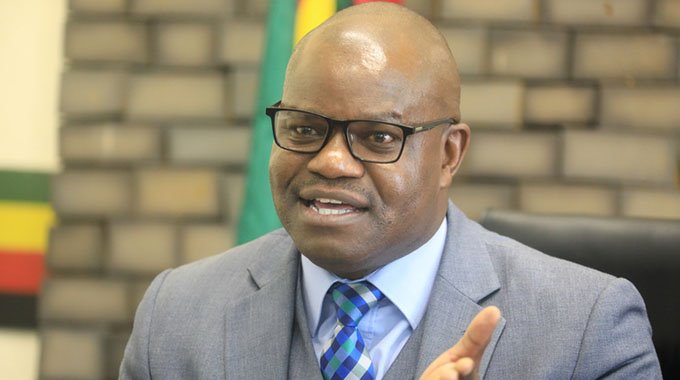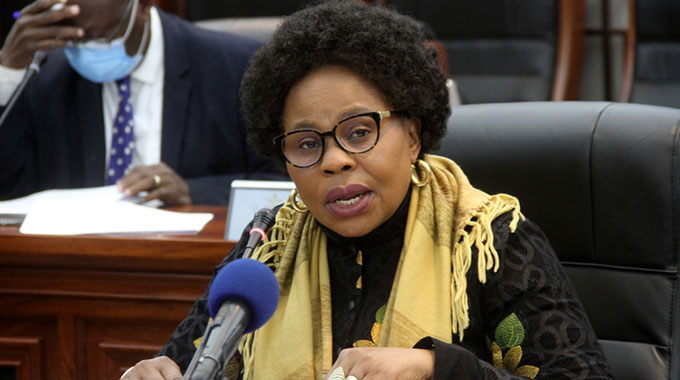Mobile money transactions suspended

Herald Reporter
Phone-based mobile money transactions and trading on the Zimbabwe Stock Exchange (ZSE)have been suspended with immediate effect to allow investigations into illegal dealings connected with the foreign currency black market and to put in place reforms that restore mobile money platforms to their original purpose.
But along with these temporary suspensions, Government is simultaneously putting into effect “prudent measures” to mitigate collateral damage to the innocent transacting public who use mobile money platforms, Information, Publicity and Broadcasting Services Permanent Secretary Mr Nick Mangwana said in a statement last night.
The purpose of the latest move was to converge all exchange rates to the single market-based exchange rate set by the weekly auctions run by the Reserve Bank of Zimbabwe (RBZ).
The black market was being funded and fuelled through the use of the four mobile money platforms, with EcoCash, where 94 percent of mobile transactions take place, being described as the “central pivot of the galloping black market exchange rate and therefore fuelling the incessant price hikes of goods and services that are bedevilling the economy and causing untold hardship to the people of Zimbabwe”.
Vast sums are sloshing around in the EcoCash system, with $8 billion held in 501 000 merchant and agent’s accounts, an average of around $16 000 in each account, along with large balances in suspense accounts at EcoCash.
None of these accounts can be monitored by the Financial Intelligence Unit of the RBZ which can, however, monitor dealings in bank accounts in the banking sector and can monitor RTGS transactions.
The Government now has evidence that millions of dollars are being transferred by merchants every day using mobile money platforms to street runners in the black market for foreign exchange, giving them the funds to buy foreign currency to hand over to the funders. Although most agency lines were supposed to be suspended, many were still operating and new lines had been opened and these unauditable accounts were being used by criminal syndicates.
In a ZBC interview last night, Mr Mangwana noted that mobile money systems were under the communications regulator Portraz, not the RBZ, and so could not be monitored or audited.
Trading on the ZSE was generating fake exchange rates, in particular the Old Mutual Implied Rate that matches the prices paid for Old Mutual shares on the London, Johannesburg and Zimbabwean stock exchanges.
In the statement, Mr Mangwana said the Government now had impeccable intelligence that made a prima facie case that mobile money systems, with the deliberate or inadvertent help of the ZSE, were engaged in illicit activities sabotaging the economy.
These activities included:
Illegal externalisation of foreign currency through transfer mispricing.
Acting as banks although not licensed to do so, with Ecocash holding $8 billion on Sunday in 501 000 agent and merchant lines that could not be scrutinised by the Financial Intelligence Unit.
Fraudulently creating and issuing non-attributable and non-auditable agent cellphone lines and accounts.
Hiding irreconcilable accounts in suspense accounts that hold huge balances for unjustifiable long periods.
EcoCash in particular being the central pivot of the black market and conspiring with big merchants as their conduit to transfer millions of dollars a day to runners on the streets to buy US dollars.
Rampant non-compliance with directives issued by the RBZ and its Financial Intelligence Unit.
Facilitating illicit trade in notes and coins that have seen premiums of 30 percent to 50 percent and causing artificial shortages of cash in the banking system.
Criminally allowing agent lines banned by the RBZ to continue trading.
Using bulk airtime sales at discounted prices tied to phantom US dollar exchange rates, distorting the Zimbabwean market and deliberately mopping up US dollars from the black market and forcing up exchange rates there.
Engaging in rampant and unchecked tax evasion.
Failing to report suspicious transactions or taking action against them.
Maintaining unauditable phone lines or accounts that are now being used by criminal syndicates, conniving with insiders to steal money through fraudulent activities like teeming and lading.
Acting as conduits of fake US dollar notes.
Facilitating criminal activity through non-enforcement of the know-your-customer requirements.
While all four platforms — EcoCash, OneMoney, Telecash and MyCash — were complicit in these illicit activities in various degrees, EcoCash because of its 94 percent market share was the central pivot.
The impact of mobile money platforms funding black market activities was exacerbated by what were described as “fake counters” on the ZSE epitomised by the Old Mutual Implied Rate. This had led to multiple phantom exchange rates, which conspired to defeat fiscal policy.











Comments